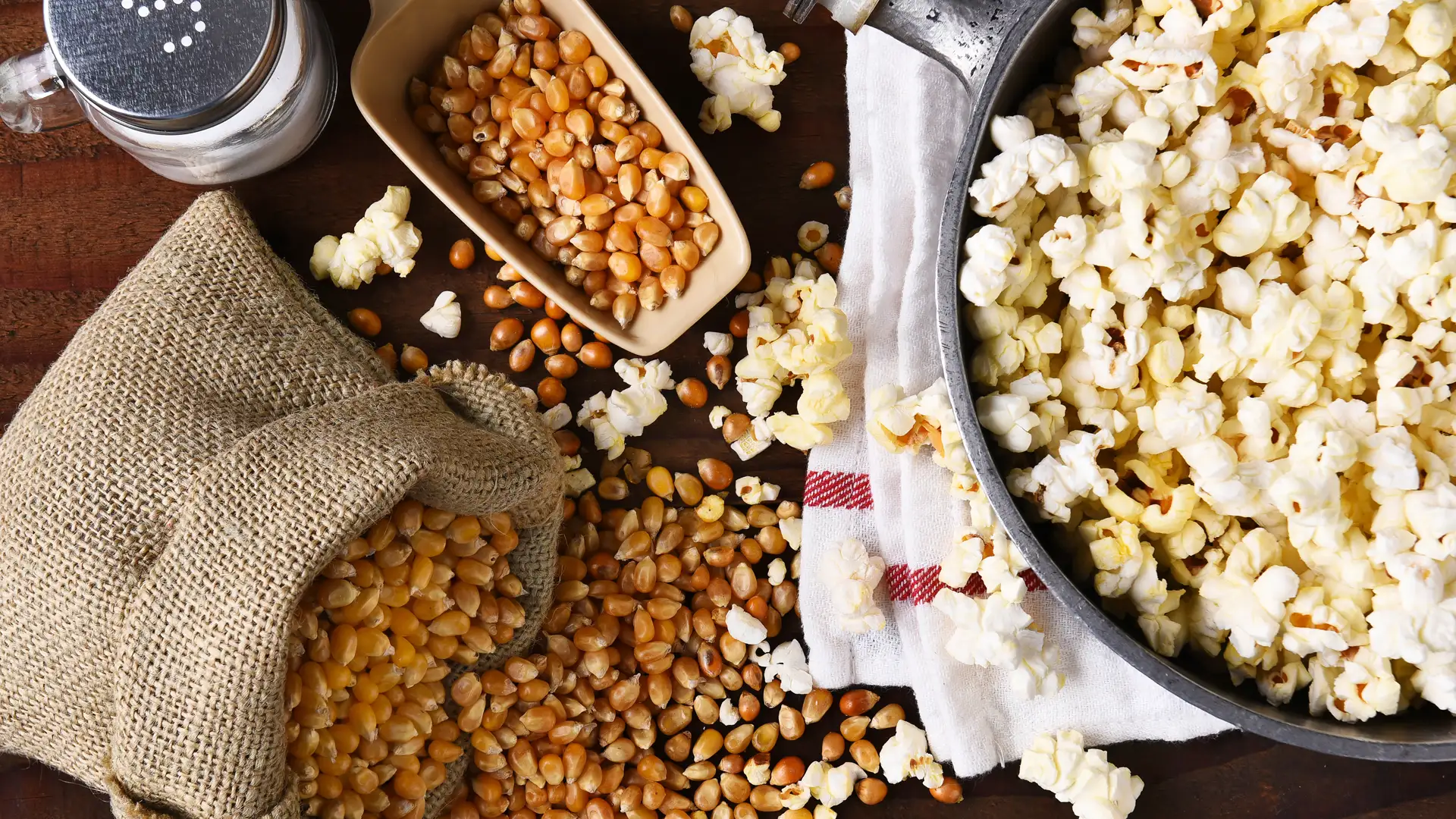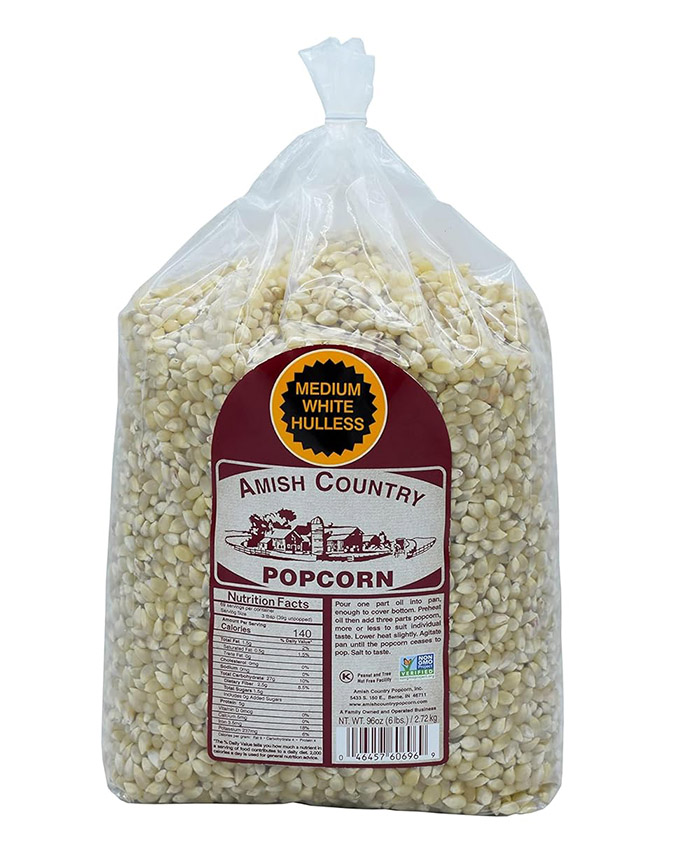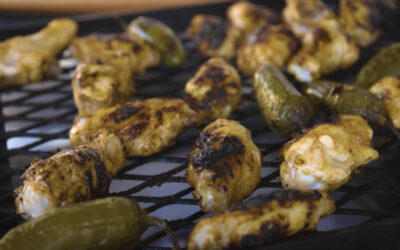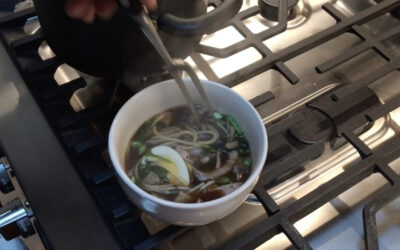
Popcorn is right up there with bacon for me—one of those snacks I could never imagine giving up. That being said, like with any treat, you’ve got to be mindful of how much you’re consuming, especially in places like the movie theater. I’m fairly certain that the “butter” they use isn’t really butter—probably some sort of overly processed syrup. Sure, it’s flavorful, but let’s be honest—it’s not doing anyone’s health any favors.
That aside, I thought I’d put together a quick piece on why popcorn, when prepared correctly, can actually be the perfect snack.
When air-popped and served without all the extra fats, salts, and sugars, popcorn transforms into a crunchy, nutrient-dense delight. Packed with fiber and essential vitamins, it can be a guilt-free indulgence. But, like any food, it all depends on how you prepare it. If you smother it in unhealthy toppings, popcorn can easily go from a wholesome option to a calorie-laden, less-than-ideal snack.
So, let’s explore why this classic snack deserves a prime spot in your healthy rotation and how to make sure it stays that way.
Some of Our Favorite Seeds:
This post may contain affiliate links which means Pints, Forks & Friends may receive commission for purchases made through links. We only recommend products that we personally believe in and use. Learn more on our Privacy Policy page.

Amish Country Popcorn
White Popcorn Kernels
Old Fashioned
Non-GMO, Gluten Free
Introduction to Popcorn
Popcorn is a unique variety of corn that “pops” into fluffy, crunchy kernels when exposed to heat. Each kernel contains a drop of water inside, which expands and causes the hull to burst open, revealing the popcorn we love.
Did you know? Popcorn has been enjoyed for over 5,000 years! It gained significant popularity during the Great Depression due to its affordability, and today, Americans consume over 1.2 billion pounds of popcorn annually.
Nutritional Value
Fiber and Whole Grain Content
Popcorn is a whole grain, making it a nutrient-dense snack naturally rich in fiber. Whole grains are linked to numerous health benefits, such as reduced inflammation and a lower risk of heart disease.
Vitamins and Minerals
A 1-ounce (28.35-gram) serving of air-popped popcorn provides:
- Calories: 110
- Protein: 3.36 grams
- Carbohydrates: 22.1 grams
- Fat: 1.29 grams
- Fiber: 4.11 grams
- Magnesium: 40.8 mg
- Phosphorus: 101 mg
- Potassium: 93.3 mg
- Iron: 0.904 mg
With an impressive 4.11 grams of fiber per serving, popcorn stands as one of the best sources of fiber among snack foods.
Health Benefits of Popcorn
Weight Management and Low-Calorie Snack
Popcorn is a low-calorie, high-volume snack. Air-popped popcorn contains just 31 calories per cup, making it a great choice for weight management. Studies show that people feel fuller after eating popcorn compared to other snacks, helping to curb overeating.
Digestive Health
Thanks to its high fiber content, popcorn supports digestive health. Fiber promotes regular bowel movements and reduces the risk of digestive disorders. Furthermore, fiber can lower the risk of heart disease, obesity, and type 2 diabetes.
A Little History
Popcorn has been a staple snack for thousands of years. Early evidence of popcorn consumption dates back to 5,600 BCE in what is now New Mexico. It became particularly popular during the Great Depression due to its low cost, and its popularity continues to soar today.
Different Types
Varieties and Flavors
Popcorn comes in many varieties and flavors, from simple air-popped versions to gourmet varieties drizzled with chocolate or sprinkled with cheese. However, for the healthiest option, it’s best to stick with air-popped popcorn and control the toppings yourself.
Shapes and Sizes
Popcorn kernels can vary in size and shape, with two main types: butterfly and mushroom. Butterfly popcorn has irregular shapes and lots of nooks and crannies, perfect for catching seasonings. Mushroom popcorn, on the other hand, pops into more uniform, ball-like shapes, ideal for coating with caramel or chocolate.
The Perfect Snack: Recipes and Tips
Healthy Popcorn Recipes
Popcorn is at its healthiest when prepared with minimal added fat and salt. Here’s a quick and simple recipe for nutritious popcorn:
Ingredients:
- 3 tablespoons olive oil or coconut oil
- ½ cup popcorn kernels
- ½ teaspoon salt
Directions:
- Heat oil and kernels in a large pot over medium-high heat, covering it with a lid.
- Shake the pot occasionally and wait for the popping to slow down before removing from heat.
- Season with salt and enjoy!
Tips for Flavorful and Nutritious Popcorn
Enhance the flavor of your popcorn with healthy toppings:
- Nutritional yeast: Adds a cheesy flavor while boosting B-vitamins, protein, and fiber.
- Herbs and spices: Add depth with rosemary, thyme, or smoked paprika.
- Dark chocolate drizzle: For a sweet treat, melt dark chocolate and lightly drizzle it over your popcorn.
These additions keep your popcorn flavorful without compromising its health benefits.
Real Popcorn: The Healthier Choice
When prepared the right way, popcorn is one of the healthiest snacks around. It’s high in fiber, packed with antioxidants, and rich in essential vitamins and minerals. Plus, it’s incredibly versatile, whether you’re aiming for a savory or sweet treat. So, the next time you’re craving a snack, skip the chips and opt for homemade popcorn!
Check out more products from Great Northern Popcorn Company
The Latest…
Christmas Ale Bacon Recipe
The Ultimate Christmas Ale Bacon Recipe: Joy in Every...
Discovering Meat Church Recipes: BBQ, Beer & Texas Flavors!
Exploring Meat Church recipes is like embarking on a...
Exploring Yakamein: New Orleans’ Hidden Culinary Treasure
Think you got what it takes to navigate a soup bowl? Allow...





